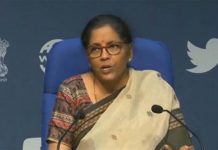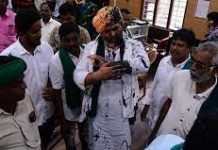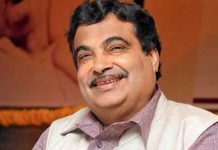 The Indian government is intent on editing out phases of Indian history that discredit the glory of this country. The Sangh Parivar wants to gloss over modern history, and concentrate on the supposed glories of ancient Indian history. The Central Board of Secondary Education (CBSE) and the National Council for Educational Research and Training (NCERT) are doing all they to stay within the boundaries of “political” correctness.
The Indian government is intent on editing out phases of Indian history that discredit the glory of this country. The Sangh Parivar wants to gloss over modern history, and concentrate on the supposed glories of ancient Indian history. The Central Board of Secondary Education (CBSE) and the National Council for Educational Research and Training (NCERT) are doing all they to stay within the boundaries of “political” correctness.
Against this background, this reporter spoke to students in Indian schools, in an attempt to understand which side of the divide they have placed themselves. Not unsurprisingly, these students have a clear idea of what they want of the education system, and strong views on the Sangh’s policies. They are not impressed with the political leanings that shape debates on the subject today. The clear message they send out is, “History deals with events that are done and over with. For goodness’ sake, how can you meddle with history?”
Says Ira Sehgal, a student of the eighth standard at St. Mary’s, “Why all this confusion? We are arguing about something that has happened, maybe, centuries ago. Anyway, history is a subject every student detests from the core of her heart. It’s something you mug for an examination, which to start with is unjustifiable and non-criteria based.”
Her friend Rahul Kumar agrees with her, “We have never regarded our history textbooks as something that can be discussed after class and analysed. It was just facts. The parts they want to cut are generally those we deem unnecessary and don’t learn. And the changes being suggested are also boring…so where is the interest factor here at all? It’s like substituting boredom for more of the same,” he says.
Students, who are at the centre of this entire controversy, are evidently completely laidback about the whole issue. “They are not trying to make the subject interesting or student-friendly. What do these politicians know about history anyway? History has been written, acted out and read; and I say all of this in the past tense. Where is the scope for tampering with reality? Then again, who has the authority to say that what we are reading currently is right, and not what they want to change it to? Or otherwise even?” questions young Shruti Mitra, who is studying for her class X board exams.
Pertinent questions those. And echoed by higher secondary students as well, a number of who take up history as a major in their last two years in school. “I have taken history as a major simply because the other options available to me were not satisfactory enough. Mathematics was not really an option, and Political Science only strengthens my belief that politics is evil and ugly. The safest options were these vague subjects like history, psychology, English, business studies and accountancy,” says Amar Sinha, who is preparing for his Class XII boards.
Do these students feel history is a waste of time? The answer is, unfortunately, a resounding yes. What then, do they think of the prospect of doing away with the subject altogether? The answer is a shocked, almost scandalised, “no”. “It would seem to leave a huge gap in our syllabus,” says Ira.
Shruti and Rahul disagree. They think it would be a good idea to do away with a “useless and burdensome” subject like history. “What is the use of reading what happened a thousand years back? Tell us what is happening around the world today, the consequences and counter consequences. Teach us how to analyse events, how to see them from various perspectives,” they counter.
As the government and historians continue their battle for possession of history as read by students in India, the young scholars seem to emphasise the need for more practical approach to education. They want education to gear them for life with practical tools.
letters@tehelka.com












